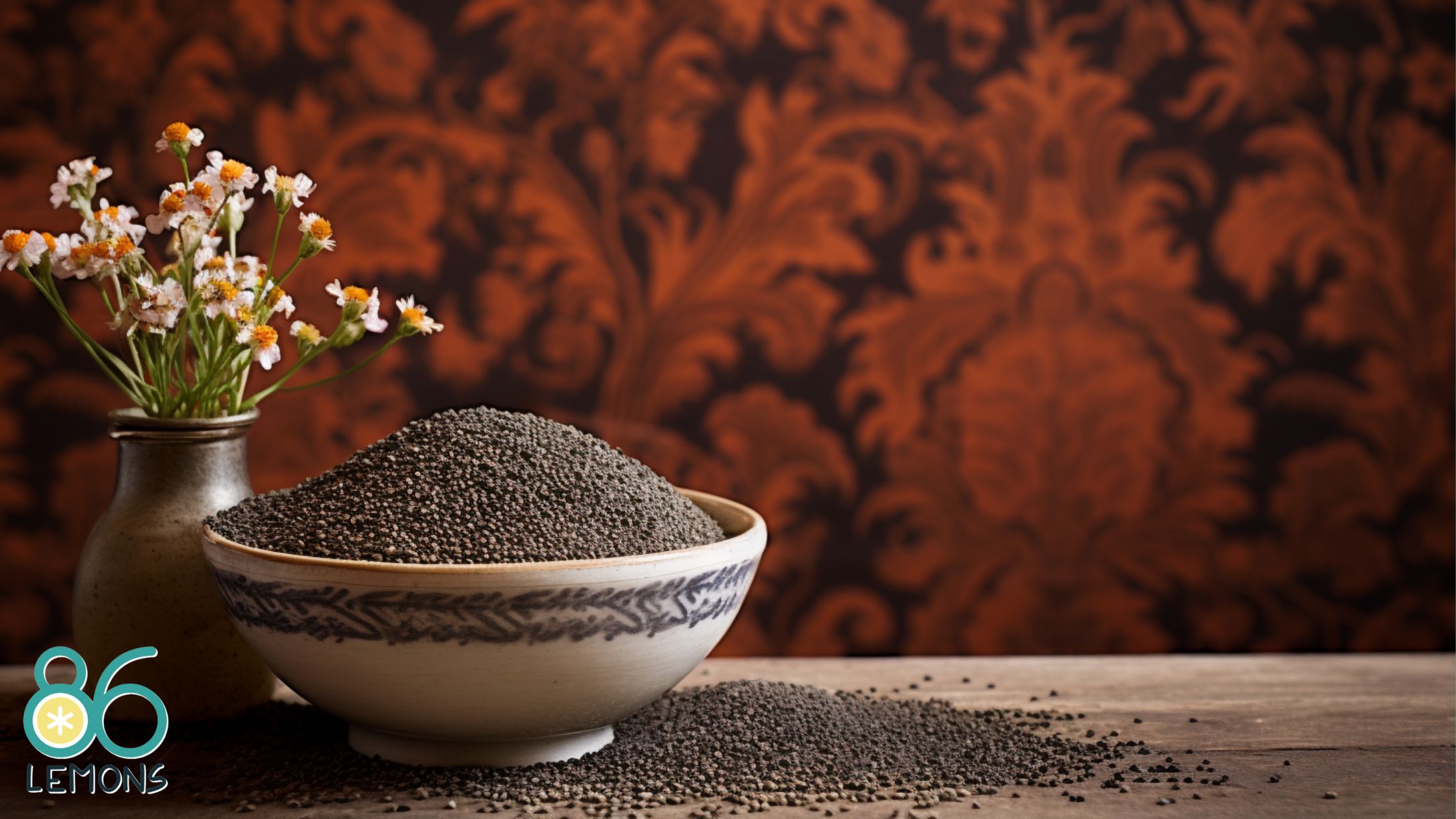Embarking on a vegan lifestyle brings a wave of culinary creativity, especially when it comes to baking and cooking without eggs. Perhaps you’ve questioned how to maintain the fluffiness of pancakes or the binding in your favorite cookie recipe.
Fear not, as vegan substitutes for eggs are not only prevalent but also diverse, offering a range of textures and flavors to suit different vegan recipes. From the natural binding properties of flaxseeds and bananas to innovative products designed to mimic the qualities of eggs, the possibilities are both exciting and delicious.
Understanding the function of eggs in recipes is crucial to selecting the right vegan substitute. Whether it’s for leavening, binding, or adding moisture, there’s a vegan solution that can do the job. Some replacements may even add extra nutritional benefits, such as fiber and omega-3 fatty acids, along with a unique twist to the flavor profile of your dish.
Diving into the world of vegan egg alternatives not only opens up a universe of plant-based options but also could take your cooking and baking skills to new heights.
Key Takeaways
- Vegan egg substitutes are varied and cater to different culinary needs.
- The choice of substitute depends on the role of eggs in the recipe.
- Innovative vegan products and natural ingredients make egg-free cooking exciting.
Understanding Egg Substitutes
If you’re excited to explore the world of egg-free cooking, you’re in for a treat! The transition to using egg substitutes can unlock new culinary possibilities, aligning with your health goals and dietary preferences without sacrificing taste or texture.
Roles of Eggs in Cooking and Baking
Eggs are culinary powerhouses, performing several critical functions in recipes. They act as binders, holding ingredients together, and provide moisture and fat to create a desirable consistency. As a leavening agent, eggs help foods rise, resulting in light and fluffy baked goods.
| Function | Role of Eggs | Egg Substitute Example |
|---|---|---|
| Binding | Keeps ingredients together | Mashed banana |
| Moisture | Adds juiciness and texture | Applesauce |
| Fat | Enhances richness and flavor | Avocado |
| Leavening | Helps doughs and batters rise | Baking soda and vinegar |
Health and Dietary Benefits of Going Egg-Free
Choosing to go egg-free with your diet can be driven by health concerns such as cholesterol levels or egg allergies. The good news is that egg substitutes can be lower in cholesterol and fat, aiding in heart health and weight management.
Plus, if you’re embracing a vegan diet, reconsidering protein sources, or accommodating an egg allergy, these alternatives can make your eating habits more inclusive and diverse.
- Cholesterol and Fat: Many egg alternatives contain little to no cholesterol and are lower in fat compared to eggs.
- Allergies: For those with egg allergies, substitutes provide a safe way to enjoy a wider range of foods.
By understanding the roles eggs traditionally play in cooking and the benefits of going egg-free, you’re well on your way to mastering the art of egg substitution. Happy cooking!
Popular Vegan Substitutes for Eggs
Embarking on a vegan journey doesn’t mean you have to sacrifice the joys of baking and cooking your favorite dishes. With a plethora of vegan egg replacements at your disposal, you can recreate the textures and flavors you love.
Plant-Based Binding Alternatives
Flaxseed and chia seeds are stars in the vegan pantry. To prepare a flax egg, mix one tablespoon of ground flaxseed with three tablespoons of water and let it sit until it thickens.
Similarly, chia eggs work wonders—just let chia seeds soak in water to form a gel-like binder. Both are perfect for cookies, muffins, and pancakes, offering not just binding properties but also a boost of fiber.
Silken tofu is a textural marvel, seamlessly blending into your quiches and custards. When pureed, it becomes undetectable, providing the desired consistency without altering the flavor. A quarter cup can replace one egg, making it an excellent choice for vegan baking.
Best Substitutes for Moisture
While applesauce doesn’t provide much in the way of binding, it’s exceptional for adding moisture to baked goods. A quarter cup of unsweetened applesauce can replace one egg, and it also imparts a subtle, fruity sweetness—ideal for cakes and quick breads.
Mashed banana and pumpkin puree are flavorful moist-makers that add character to your treats. They both work well in recipes where a little fruit or vegetable flavor complements the final product, such as muffins or brownies. Remember, a half-cup of banana or pumpkin can substitute for one egg.
Leavening without Eggs
Aquafaba, the miraculous liquid from canned chickpeas, whips up just like egg whites and is stellar for creating fluffy meringues and light cakes. For each egg white, use about two tablespoons of aquafaba to achieve that airy texture.
Are you craving something creamy and tangy? Vegan yogurt comes to the rescue, especially in recipes that require a bit of an acidic kick to activate baking soda. It introduces a smoothness and levity to your batter, ensuring your baked marvels rise beautifully.
Remember to experiment and find your favorite replacements. Whether you’re after binding, moisture, or leavening, these vegan substitutes will help you bake with joy and without compromise!
Specialized Vegan Egg Products
Get ready to explore the exciting world of vegan egg alternatives that can revolutionize your plant-based cooking and baking!
Commercial Vegan Egg Alternatives
You’ll be thrilled to find a variety of commercially available vegan egg substitutes that are not only innovative but also versatile. One star of the show is Just Egg, a mung bean-based substitute that scrambles just like traditional eggs. It’s perfect for those Sunday brunch omelets or weekday scramble.
Firm tofu, often found in your grocery store, is another excellent choice for mimicking the texture and heartiness of scrambled eggs. Press the tofu to remove excess moisture before cooking to achieve the best results.
For baking, Ener-G Egg Replacer is a longstanding favorite among vegans, with a mix of potato and tapioca starch to achieve the right consistency in cakes and cookies. Similarly, Bob’s Red Mill Egg Replacer offers a gluten-free solution for your baking needs. To sweeten the deal, brands like Simply Eggless are emerging to bring even more variety to your plant-based pantry.
| Product | Main Ingredients | Great For |
|---|---|---|
| Just Egg | Mung Bean Protein Isolate | Scrambles, Omelets |
| Firm Tofu | Soybeans | Quiches, Tofu Scramble |
| Ener-G Egg Replacer | Potato Starch, Tapioca Starch | Baking |
| Bob’s Red Mill | Soy, Wheat, Almond | Baking |
| Simply Eggless | Lupin Bean Protein | All-Purpose |
Making Vegan Meringue and Foams
Imagine creating fluffy, cloud-like meringues without a single egg – you can with the magic of chickpea water, also known as aquafaba. This liquid gold from canned chickpeas whips up beautifully, just like egg whites, making it a fantastic ingredient for meringues, mousses, and foamy cocktails. Add a touch of cream of tartar or baking powder for stabilization, and voilà!
For an even more convenient option, pre-made vegan meringues are available, often incorporating vegan mayonnaise to achieve the desired lightness and texture. Whether you’re whipping up a lemon meringue pie or a dreamy chocolate mousse, these solutions have you covered.
| Creation | Key Ingredient | Secret Tip |
|---|---|---|
| Vegan Meringue | Aquafaba | Add cream of tartar for peak performance |
| Vegan Foams | Vegan Mayonnaise | Use in cocktails for a luxurious twist |
Unlock the full potential of your vegan culinary experiences with these innovative egg alternatives!
Creative Vegan Cooking Techniques
Embarking on vegan cooking means experimenting with a plethora of unique ingredients that not only replicate the functions of eggs but also infuse your dishes with new flavors and textures. Whether you’re whipping up a batch of muffins or perfecting a velvety salad dressing, the creativity in your kitchen is about to skyrocket!
Culinary Tips for Vegan Egg Replacement
In Baking: For your baking adventures, embrace ingredients like pumpkin puree and fruit puree to add moisture to quick breads and muffins. Ready for some chemistry magic in your vegan baking? Mixing baking soda with apple cider vinegar creates a reaction that leads to fluffiness in cakes and bread, perfect for those who adore a lighter crumb.
For French Toast or Crepes: A velvet-like mixture of non-dairy milk blended with flour or cornstarch acts as an amazing binder, simulating the classic egginess needed. Just dip and cook, and you’ll be amazed at the authentic texture you’re able to achieve!
Innovative Use of Fruits and Vegetables as Substitutes
Sweeter Options:
- Bananas: Their natural sweetness lends itself splendidly to desserts and breakfast sandwiches.
- Sweet Potatoes: A powerhouse for denser baked goods, their starchiness complements the batter beautifully.
Vegetable Versatility:
- Avocado: Pureed, it creates a rich, creamy texture in dishes like stir-fries or salad dressings—plus, it’s packed with healthy fats!
- Legumes: Believe it or not, aquafaba (the liquid from chickpeas) whisks up like egg whites and is a star in lighter fare such as mousses or meringues.
By integrating these fruits and vegetables, your vegan culinary techniques will not only be healthier but also enviably innovative. Enjoy the exploration and let the plant-based wonders elevate your cooking to new heights!


